How Duolingo went viral on TikTok to millions of users
Interview: Overnight success took 18 months
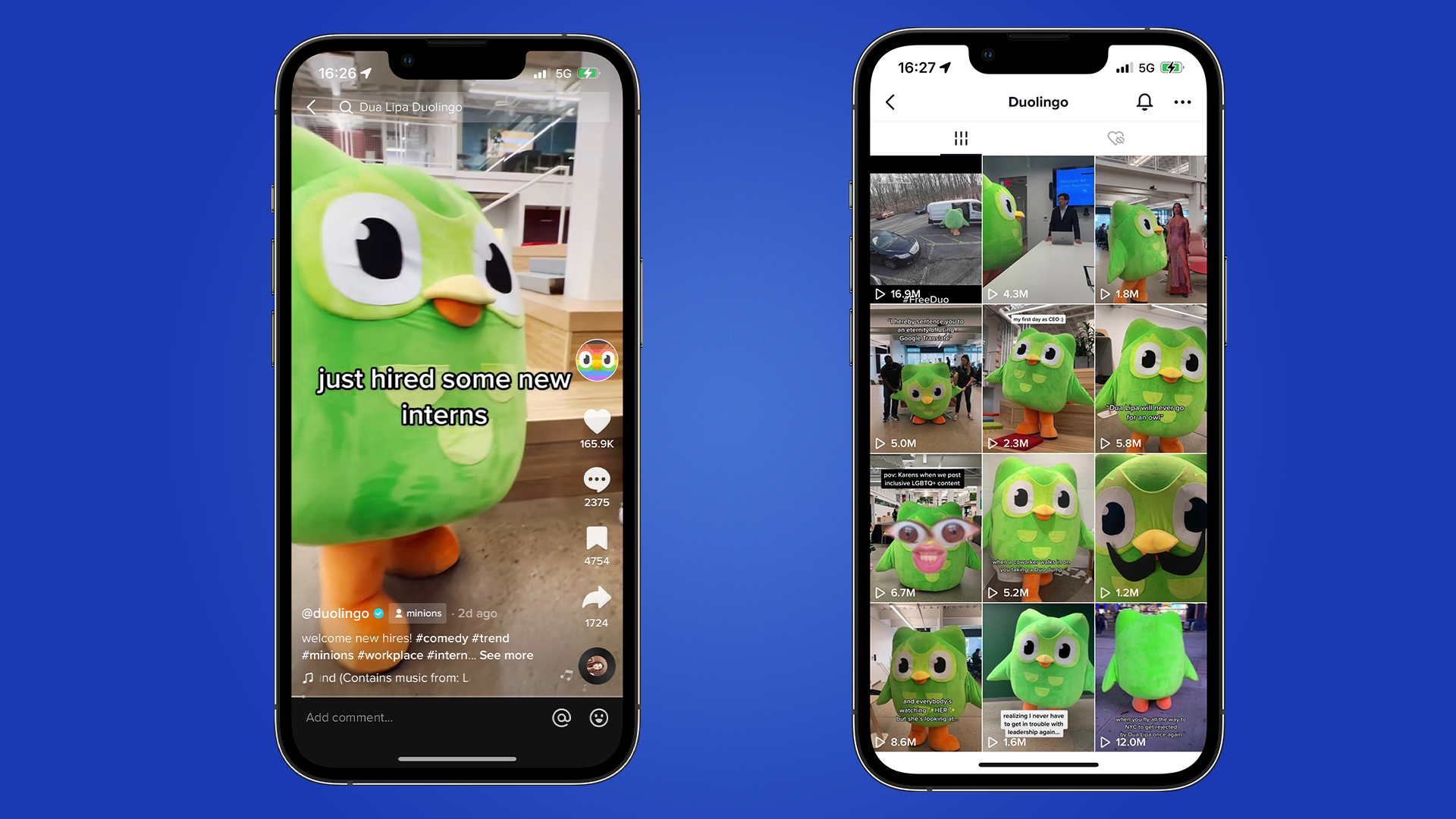
While you may be familiar with Duolingo as a language learning and translating resource, on TikTok it's better known as a sitcom starring Duo, its main character.
Brands have evolved along with social networks over the past few years, using tweets and Facebook posts to interact with audiences. But there's recently been some changes where users want to see brands have fun and make them laugh, while keeping them informed about the company's message and activities.
In the space of 18 months, Duolingo has become a viral sensation on TikTok, amassing up to four million views on almost every video it posts. This has been the result of Zaria Parvez's efforts, the global social media manager at Duolingo.
We recently spoke to Parvez about how this came about on TikTok, and how much of a challenge it can be to keep the viral videos going for its new audience.
How Duo became a sitcom
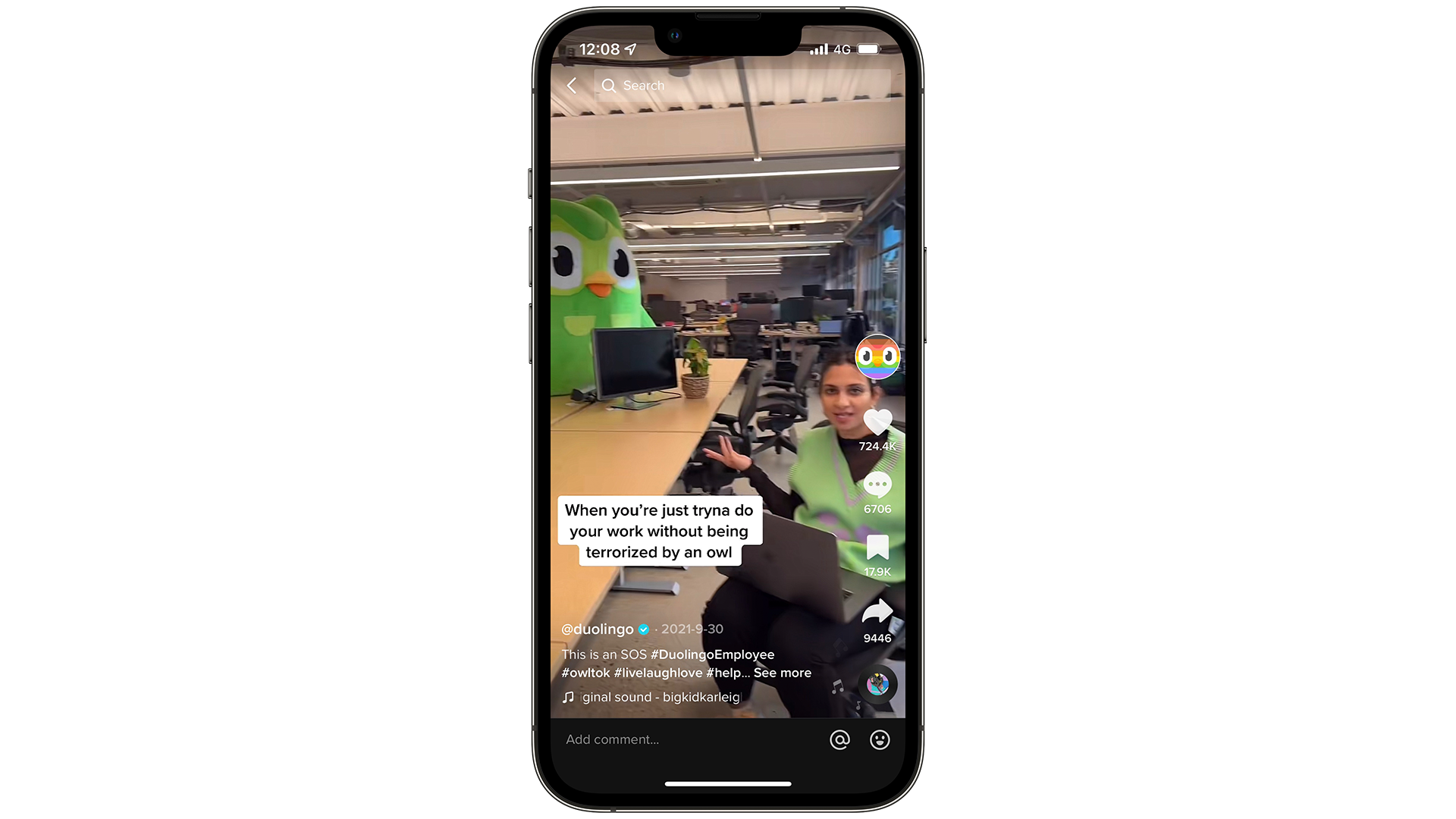
We wanted to know from Parvez (pictured) how the idea for the TikTok videos came about. "Our story began back in February 2021, where we partnered with an agency to work on a campaign called #learnonTikTok, revolving around language learning," Parvez explains.
"It was fine, but it wasn't spectacular. We ended that partnership and six months later I felt as though there was still an opportunity with TikTok once we came back to our offices after the first lockdown in the USA." Parvez continues. "It was September 2021 when TikTok announced that it had active users of around 1 billion, and that was a moment where I wanted to find an audience for us on there."
Finding the trends
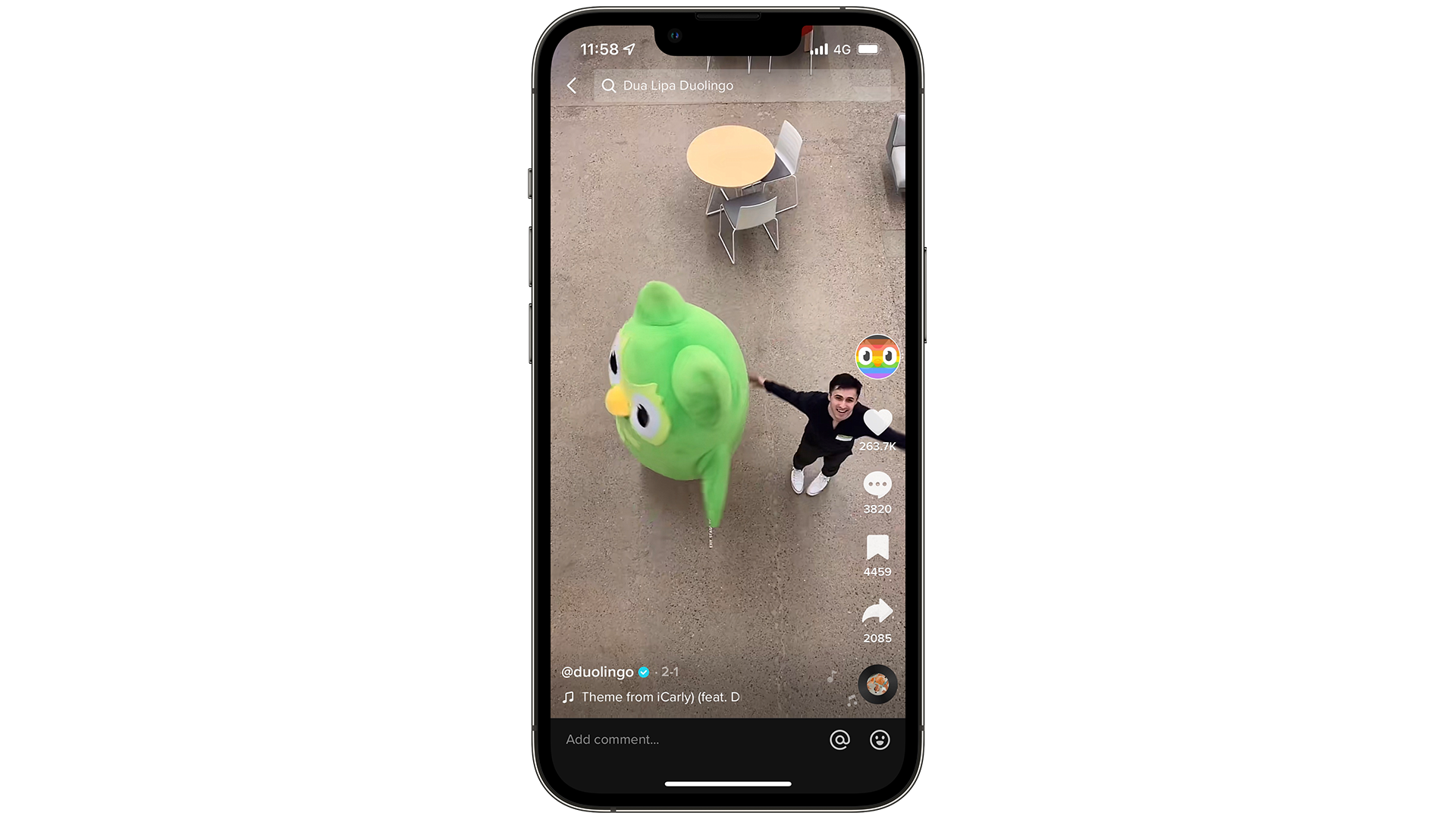
Every social platform can ride a wave of certain trends that can happen at any time, at any location. We asked Parvez how her team looks at the latest TikTok trends to apply them to the Duolingo account. "I think one of the funniest and most basic things is that we have our ear to the ground in giving the community what they want to see," Parvez continues.
Sign up for breaking news, reviews, opinion, top tech deals, and more.
"A lot of our storylines on TikTok started with funny videos and memes we've seen on the internet, such as Duo being a big fan of Dua Lipa – that came to be because people would mix up our names, such as Do-a-libra and other ways. Another story is about how Duo hates Google Translate, which is just a funny play for the character to us and the audience." Parvez explains.
"Once trends would pop up, we'd match the trends to the ideas we already had, and that really allowed space for quick approvals for new videos, so these could go live sooner than usual. Being proactive rather than reactive helped break through the noise."
A transition of social media interactions
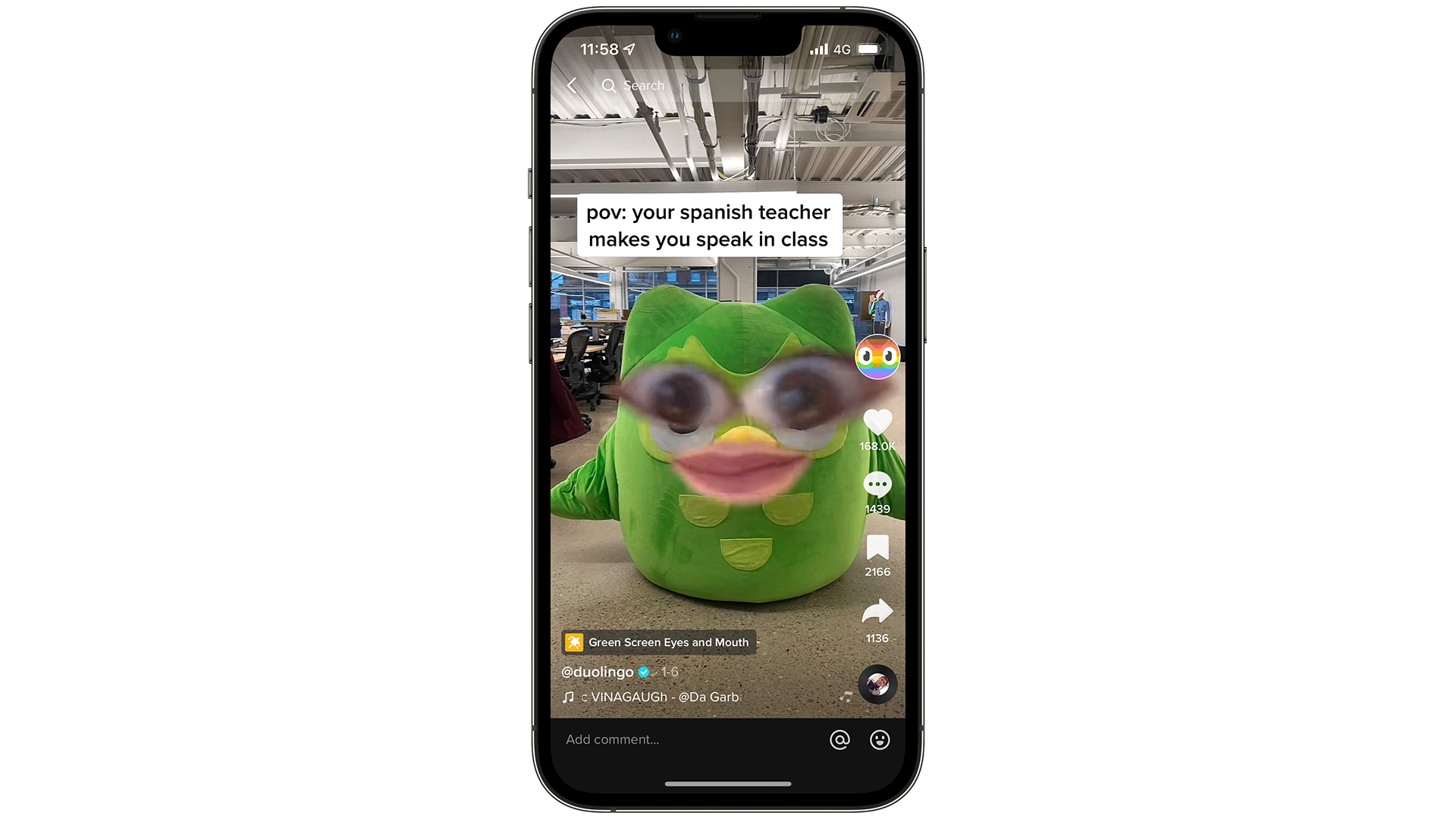
There's a chance that you've interacted with a brand on Twitter and received a dry and direct reply from one of the team. Duolingo is doing it differently with TikTok and we asked Parvez if that's intentional. "It's funny because there seems to be this new transition from the authenticity that everyone loved about Instagram, as it was an authentic point of view on things," Parvez explains. "Now this new generation of users are coming through video sharing which is almost absurd and bases itself on craziness. For Gen Z, it looks to be based on this."
As an aside, we wanted to know from Parvez how hot wearing that suit can be, considering the recent heat waves.
"It's hot in that suit, and while there's a fan in there, it doesn't really compensate for how warm it can get in there."
Duo: the sitcom?
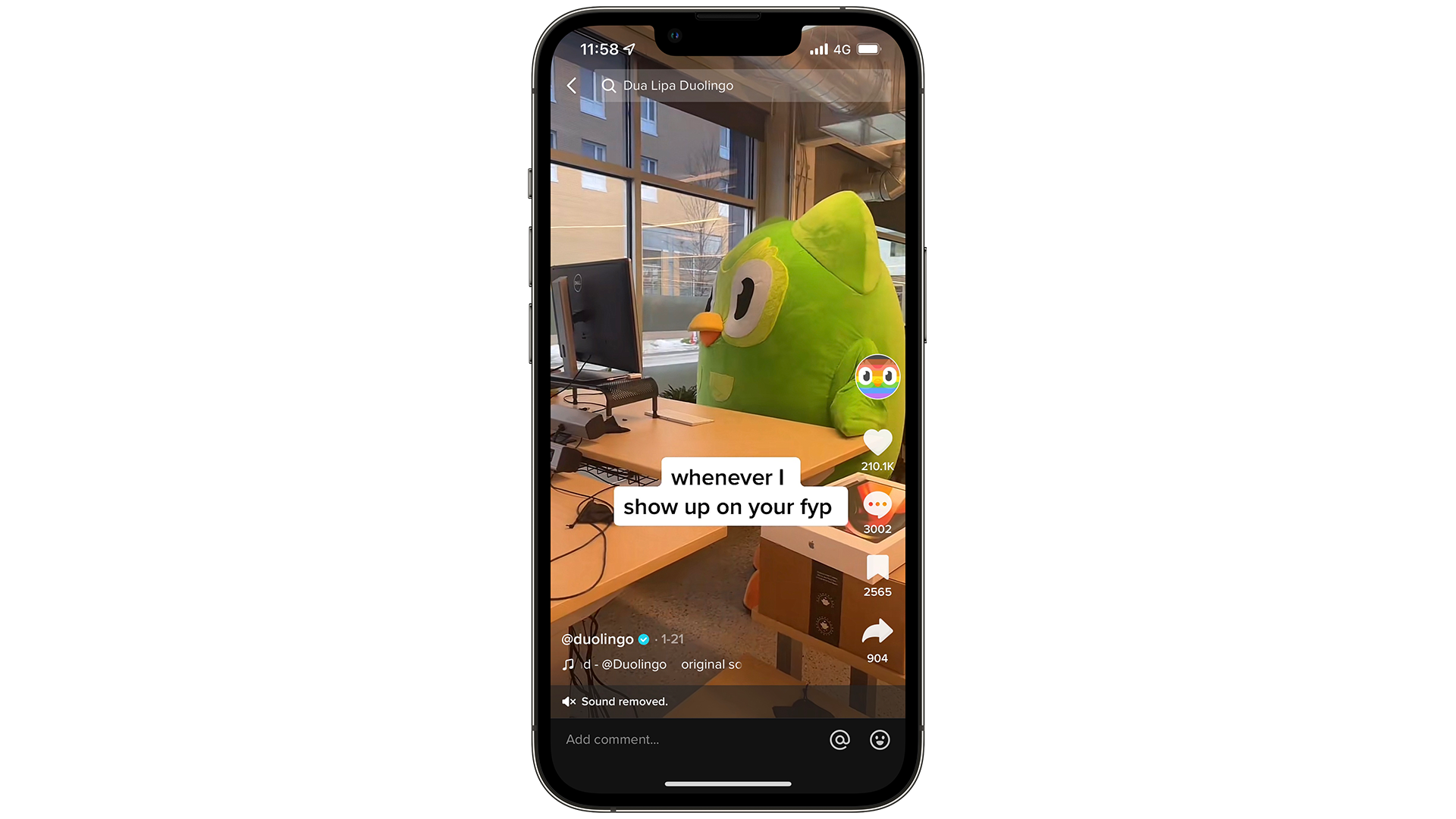
Scrolling through the many TikTok videos from Duolingo, a lot of the content reminded us of a sitcom, and we wondered whether Parvez and her team felt the same. "That's funny, as it's indeed what we've been trying to do here – building a sitcom with our TikTok," Parvez reveals. "It was based on our human truth of what our team found, that language learning is hard and we make it fun, which is what Duolingo is all about."
Parvez continues. "My job was to enhance what I did with Twitter and Instagram, in how these profiles were pushy and passive-aggressive, and bring that to TikTok. Because we have that humor, that humorous truth, and it's what our consumers think of us, it made sense to be quirky and not take ourselves so seriously."
We asked whether the team has been tempted to post the TikToks on other platforms such as Instagram, but Parvez says they don't do this. "What's interesting is that if you go to our social channels like Instagram and Facebook, we don't share our TikToks there, as they don't resonate as they do on TikTok, they just don't care as much on other platforms." Parvez continues.
"So it's this really cool balance of understanding that language learning is hard and making it fun. But there's also the legitimacy of language learning, and we try to bring it to life on TikTok through the character."
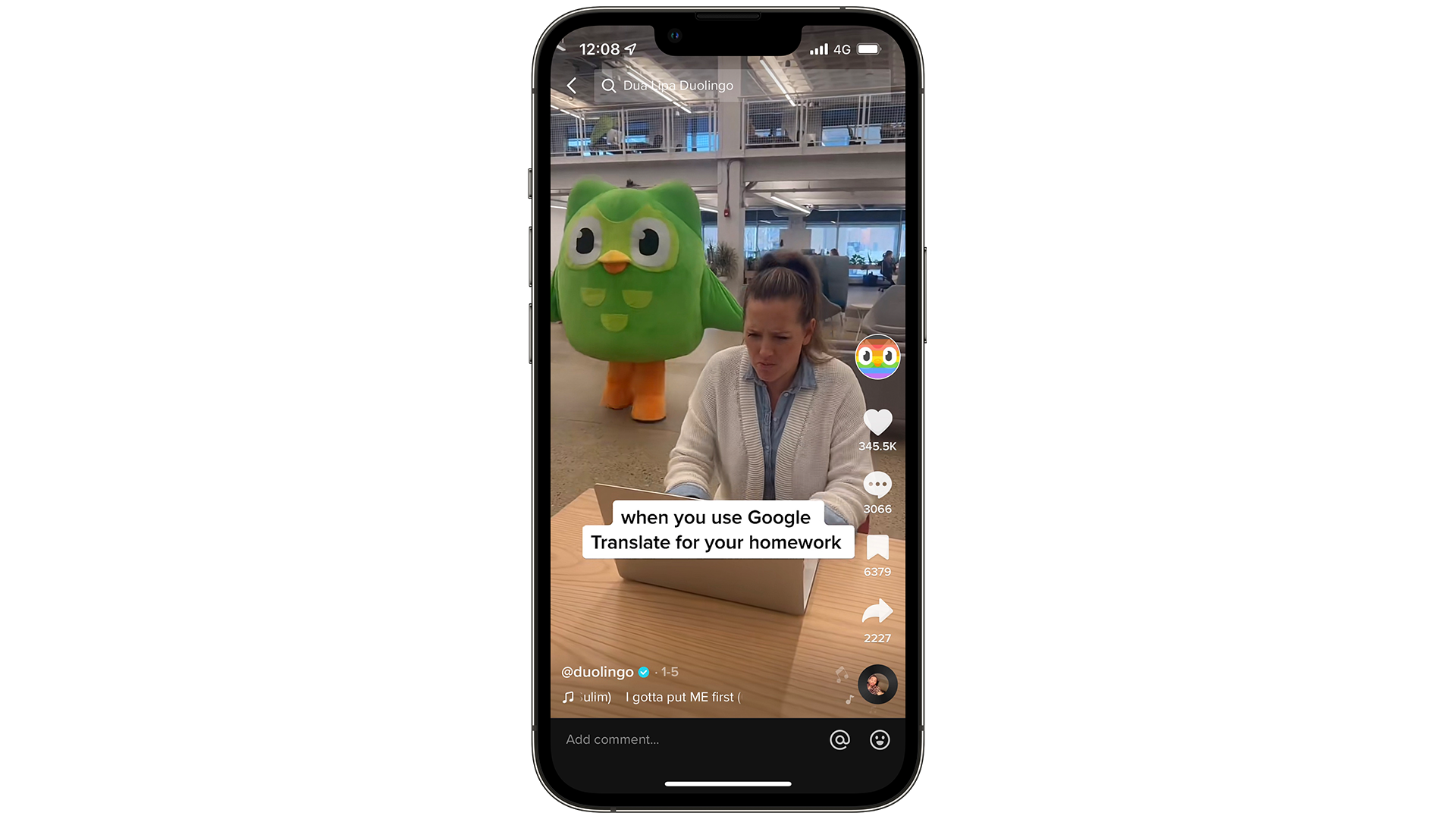
As Duolingo has plenty of useful products, such as the ABC program for children, or the English Certification test to help users in improving their language skills, we asked Parvez if these could appear in the TikTok account to appeal to more of its new users.
"A couple of weeks ago we ran a test for ABC and made it fun for kids, and honestly it hasn't done as well as our organic efforts did," Parvez explains. "So we're in this in-between place of being on a great platform that engages users, however, we know that the magic of why people love our account is because we're not trying to sell our features," Parvez reveals.
"Not doing this has in fact attracted new users, so right now we're on the fence as to carrying on with what we've been doing, or focus on some of our products." Parvez clarifies. "For now we've decided to focus on the character and the sitcom aspect, but if we decide to change, we'll look at the potential impact and adjust in the future if needed."
Taking advantage of TikTok's features?
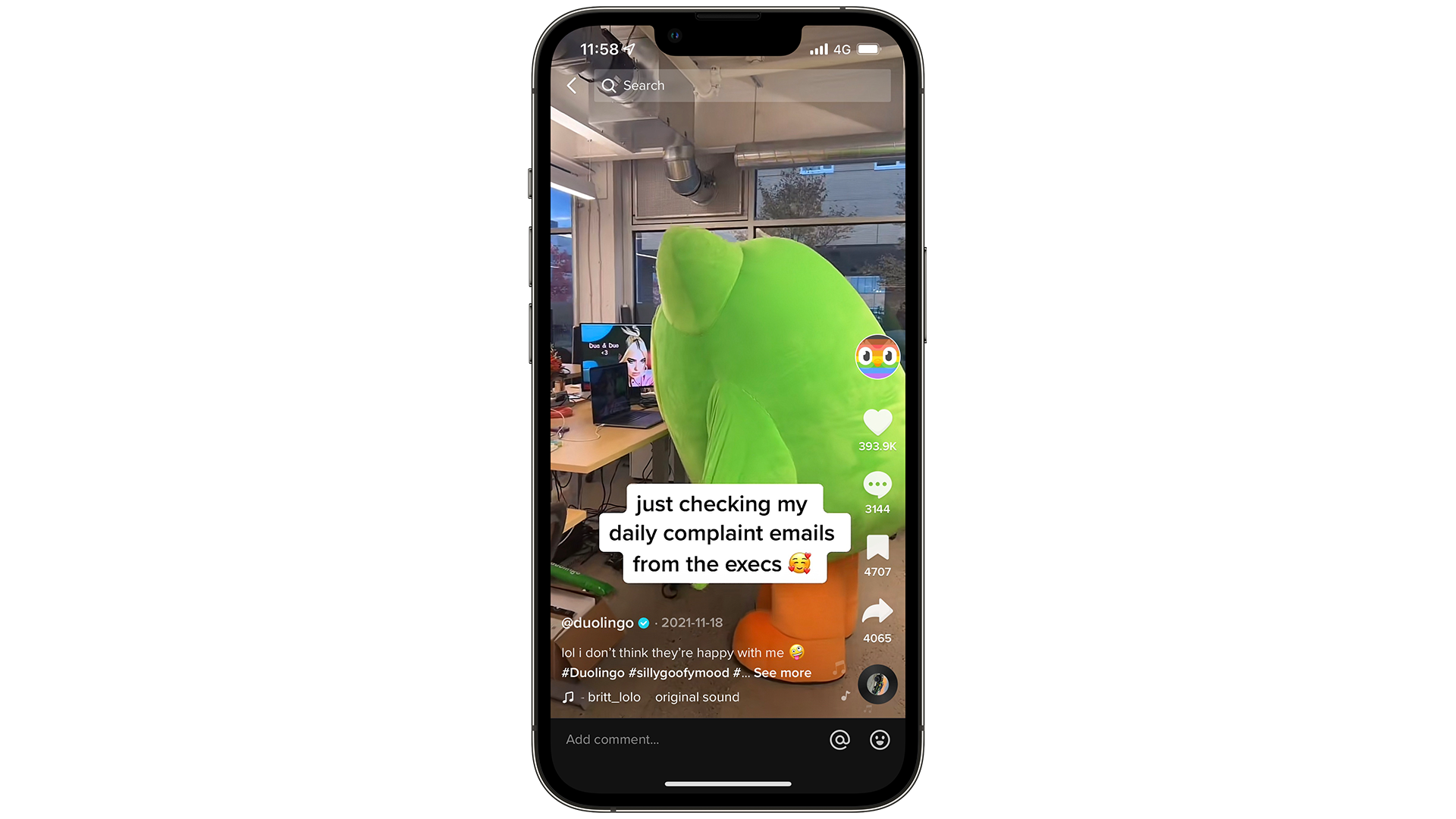
With TikTok constantly bringing out new features such as Stories, we asked Parvez if there are any features that she would like to see, to make her job easier.
"Editing within the app is not as good as other apps on your phone," Parvez explains. "Some users have Appcut to do this, but as soon as TikTok streamlines video editing, the more video content we can get out there."
"I'm not sure if it's intentional on TikTok to easily download the video without a watermark, as this is something you can do on Instagram, and not TikTok." Parvez continues. "If we could change TikTok to be a video capturing platform in a more streamlined way, I think users would be more excited about the platform. I hope the company will focus on that in the future for its users and creators."
Could Duo gain a voice?
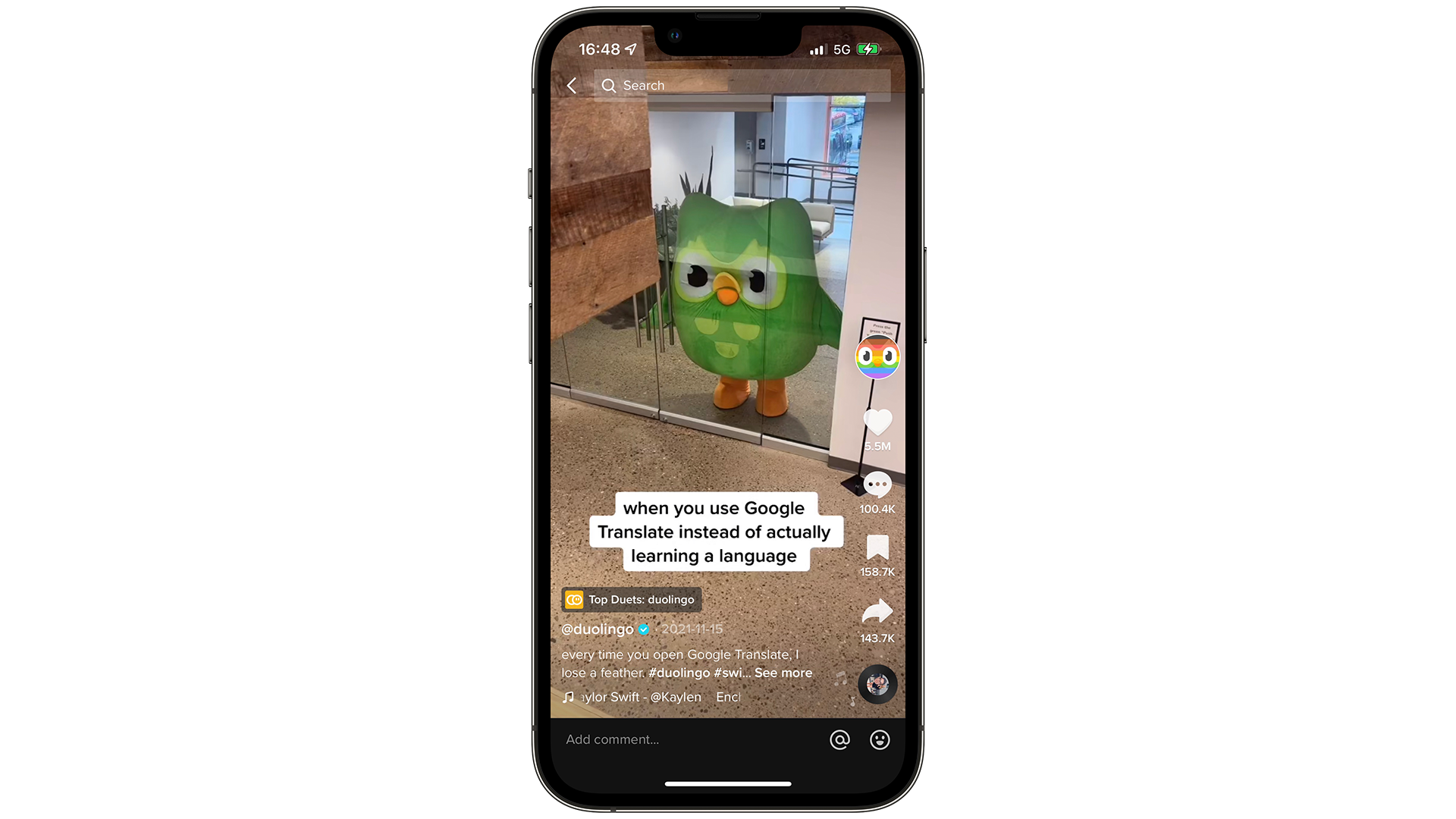
With regard to the character of Duo, we asked whether it's going to eventually have a voice to build on that sitcom feel.
"It's definitely an avenue we're exploring," Parvez reveals. "You'd be surprised at the amount of discussion as to who is Duo and what is Duo as a character. This account started out as a test, and now it's this project where we really need to find out about these things."
Parvez continues. "While we haven't introduced his voice, we have introduced his male gender, and while it's not a big part of his personality, we're taking small steps to figure out where Duo goes." Parvez continues. "But I wouldn't be surprised if he has a voice in the future, as it opens up opportunities for good content."
Inspiring the next generation of creators
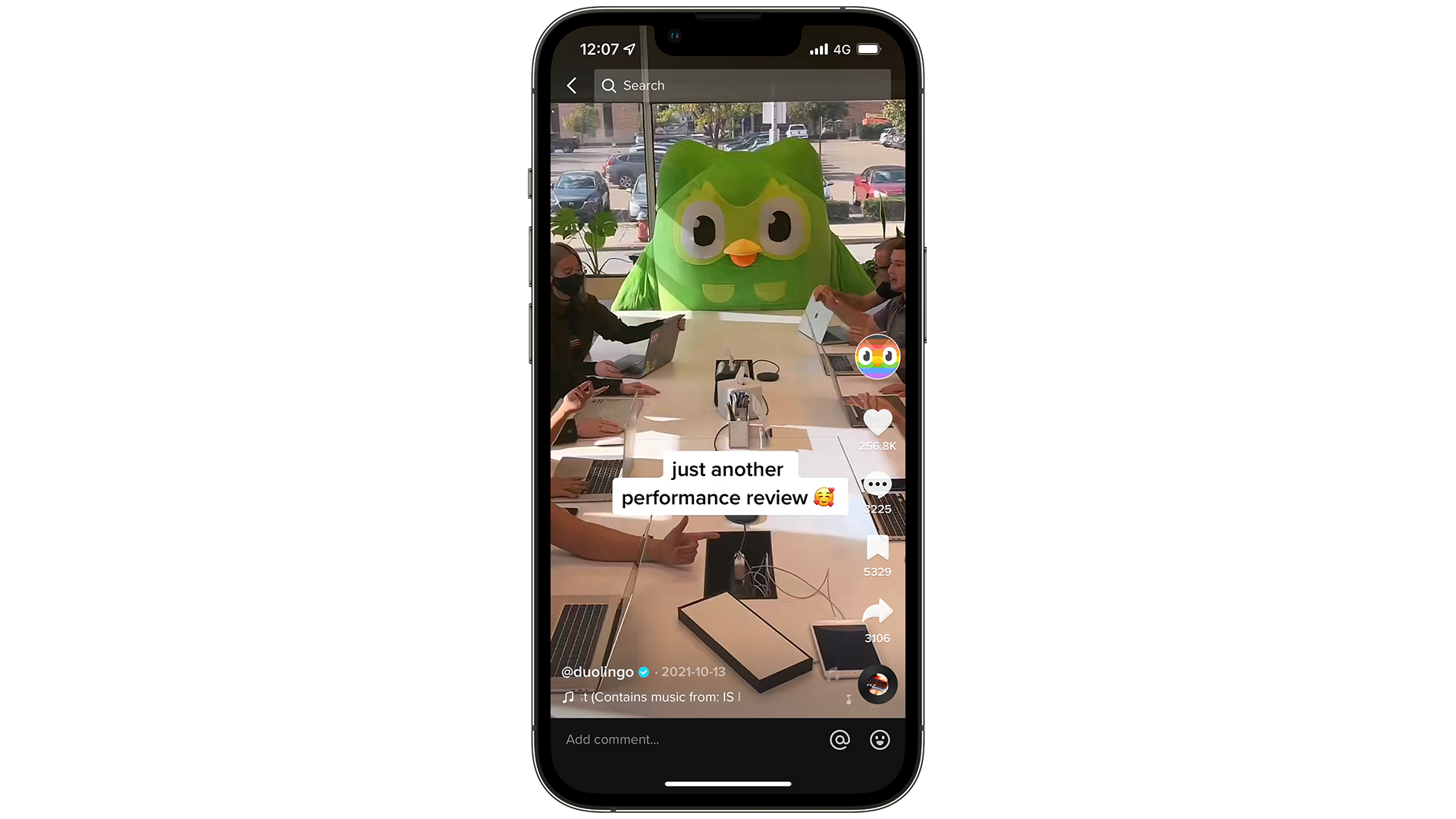
Due to the massive success Duolingo and, primarily, Parvez has had with the TikTok account, we wondered whether she hoped it was an example for her to show other aspiring creators what they could do as a career.
"My entire family is all doctors and engineers, and you'd expect that It's what they wanted for me. And then I just chose this totally different career path, so I think for me, I've realized that this success has brought a platform," Parvez explains.
"I hope to use this privilege of having a platform to inspire more young talent to join the tech industry," Parvez continues. "There's space for everyone, but I'd also like to inspire more managers and corporate execs to trust and empower the young talent they already have to do good work as well."
Parvez elaborates. "For example, I was hired to do this, and they allowed me to run with it and create content, instead of giving me a task that wasn't in the best interest of the account, and at worst, went away from how I believed it should be run. That didn't happen, and it's very empowering."
"We also spent nothing on all of this in terms of budget – this was all organic success." Parvez continues. "So I hope that's a sign to say you don't need a million dollars to make this kind of virality happen. You just need someone who's motivated and has a good idea, and let them do it."

Daryl is a freelance writer and author of two books—The Making of Tomb Raider and 50 Years of Boss Fights. A third book, the follow up to ‘Tomb Raider’, comes out in 2026. Having worked at TechRadar previously as a software writer from 2021 to 2023, Daryl understands how software can benefit users, as well as having an interest in how accessibility features can benefit others.
With over a decade of experience, his work has been featured in Tom’s Guide, SUPERJUMP, Pocket Tactics, Radio Times, The Escapist, and more.